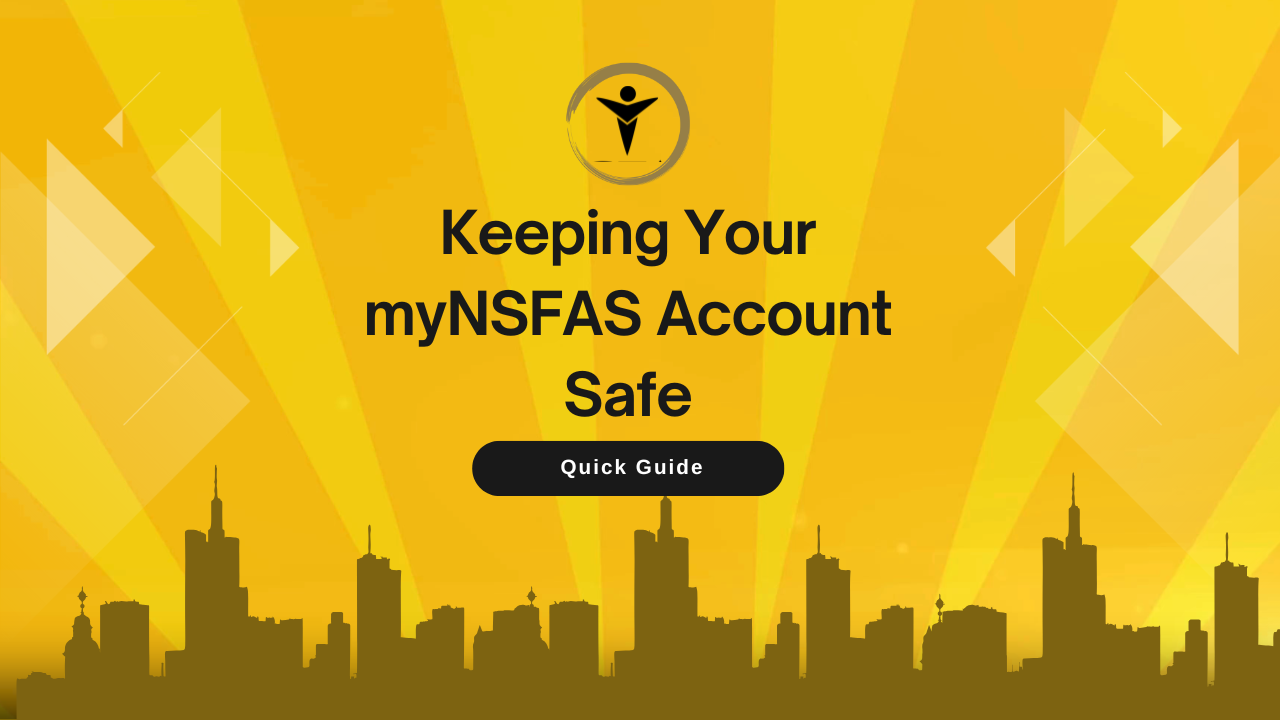Keeping your myNSFAS account safe is very important. This is where you apply, track your funding, and see your payments. If someone gets into your account, they can change your details or steal your money.
Here are easy ways to protect your account.
1. Use a Strong Password
Choose a password that is not easy to guess. Don’t use your name, birthday, or “123456”. Use a mix of:
- Capital and small letters
- Numbers
- Special characters (like ! or @)
Example: Nsfas*197!$e
Don’t use the same password you use for Facebook or Gmail.
2. Change Your Password Often
Change your myNSFAS password every few months. This helps keep your account safe even if someone finds out your old password.
How to do it:
- Log into your myNSFAS account
- Go to “Account Settings”
- Click “Change Password”
- Choose a new password and confirm
3. Don’t Share Your Login Details
Never give your password or ID number to friends, classmates, or people on social media. NSFAS staff will never ask for your password.
If someone offers to “help” with your account or promises fast approval in exchange for your login – it’s a scam.
4. Always Log Out
When using a shared or public device (like a library or internet café), always log out of your myNSFAS account when you’re done. Leaving it open is risky.
5. Use Your Own Email and Phone Number
Your myNSFAS account is linked to your email and phone. If you use someone else’s, you might lose access later. Always register with:
- Your own working email
- A cellphone number that you can access
If you change phones or emails, update your profile right away.
6. Watch Out for Fake Websites
The official NSFAS site is www.nsfas.org.za. Don’t trust other sites or links shared in WhatsApp groups or social media. Scammers often copy the website to steal your information.
Only apply and log in from the real site.
7. Set Up Two-Step Verification (If Available)
NSFAS sometimes sends a one-time PIN (OTP) when you log in. This helps protect your account. Never share the OTP with anyone.
If two-step login becomes available on the portal, activate it in your account settings.
8. Report Suspicious Activity
If you see something strange in your account like a changed phone number or missing application, report it to NSFAS right away:
- Call: 0800 067 327
- Email: info@nsfas.org.za
- WhatsApp: 078 519 8006
What is the safest way to create a myNSFAS password?
Use at least 8 characters with uppercase and lowercase letters, numbers, and special symbols. Avoid using your name or ID number.
How often should I change my myNSFAS password?
It’s a good idea to change your password every 3 to 6 months, especially if you’ve used it on other websites.
Can NSFAS call me and ask for my login details?
No. NSFAS will never ask for your password or OTP. If someone does, it’s a scam.
What should I do if someone else has access to my account?
Change your password immediately and contact NSFAS to secure your account.
Is it safe to log into myNSFAS at an internet café?
Only if you log out afterward and avoid saving your login info on the browser. Always clear the browser history when done.
I lost my phone. Can someone else use it to access myNSFAS?
If your phone is unlocked and has your saved passwords or email, yes. That’s why it’s important to change your password and unlink old devices when you lose your phone.
How do I update my contact details safely?
Log into your myNSFAS portal at www.nsfas.org.za and go to “My Personal Details.” Only do this from a trusted device.
Are there fake NSFAS websites?
Yes. Some websites look real but are fake. Always use the official site: www.nsfas.org.za.
Can I use my friend’s phone or email for myNSFAS?
No. Use your own phone number and email. If you use someone else’s, you may lose access later.
What is the OTP from NSFAS?
OTP stands for “One-Time PIN.” It’s sent to your phone to confirm your identity. Never share it with anyone.
Conclusion
Your myNSFAS account holds your funding info, payments, and future study plans. Keep it safe by using strong passwords, staying alert, and never sharing your details. A few simple steps now can protect your money and your future.
